What does the word sustainability mean to you? Is it a buzzword which gets over-used by businesses and the Government, or does it have a deeper meaning?
The topic may appear broad, but University College Dublin’s Bachelor of Science (BSc) in Sustainability sees it in an interdisciplinary way – with representation from numerous disciplines such as science, social sciences, law and economics.
The programme is aiming to attract students with an interest in a broad range of industries who will benefit from the added training. Through industry partners, its internship programme and its connection to UCD’s Earth Institute, students will have pathways to research areas or for careers within industries like business, government or environmental sciences.
“There is an ever-growing number of companies with sustainability-related departments, as well as a growing number of sustainability consultancy businesses,” programme co-ordinator Kirsten Southard says. “The graduates will be an attractive prospect for these sorts of roles. They will also have the opportunity to study further through graduate programmes.”
Earth Institute
UCD’s BSc in Sustainability is Ireland’s only bachelor level degree in sustainability. As co-director of this programme and director of UCD’s Earth Institute (where much of UCD’s intersectional research in sustainability takes place), Professor Tasman Crowe is able to impart up-to-date knowledge and inspire students to take a different approach to environmental research.
“I’ve been in UCD for 21 years now,” he explains. “My role in the Earth Institute is all about bringing people together from different disciplines, getting them talking to each other, sparking new research ideas and translating that into policy and impact. That’s alswo translated into the sustainability degree.
“We can’t be working in individual silos. We have to be talking to each other, and to the wider society, to better understand what we need from research.”
Mix of backgrounds
The BSc in Sustainability is still relatively new at just three years old, but is gaining in popularity. Southard says there has been a 50% increase in mentions of the programme in this year’s CAO.
“There’s a real interest in it from prospective students, which is great,” she says. “It’s in its third year now, so we’ll have a full cohort next year. The first cohort was 40 students and now it’s increased to 90. The CAO points for 2021 were 506. There are a lot of students from Dublin, but there are students from more rural areas as well; [there is] a nice mix of backgrounds in the programme.”
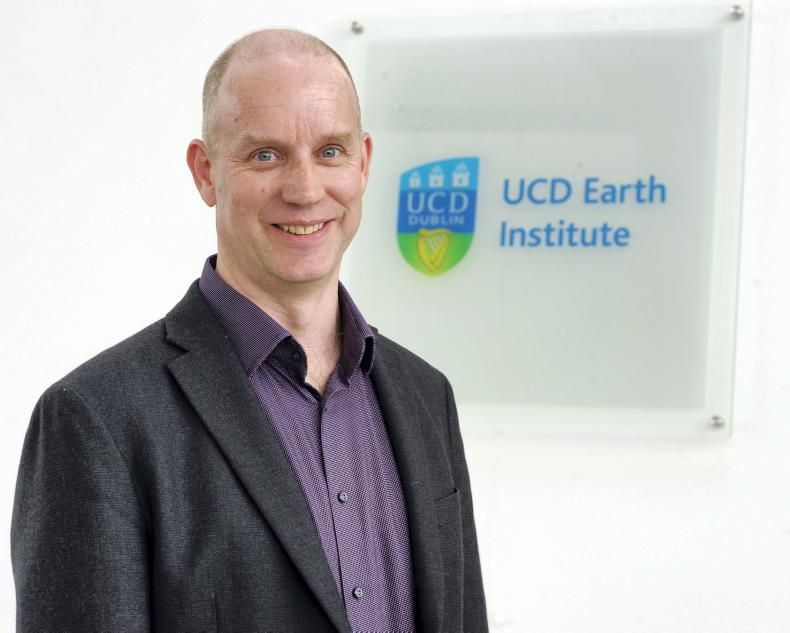
Professor Tasman Crowe is director of UCD's Earth Institute and co-director of their BSc in Sustainability.
In addition to the required CAO points, prospective Leaving Cert students will require a 02/H6 in mathematics and a 06/H7 in Irish, English, and three other recognised subjects. For Maths, ordinarily Level 2 is a grade of 80-89%, whereas the Higher Level 6 is 40-49%, an Ordinary Level 3 (70-79%) or Higher Level 7 (30-39%) in Irish, English and three other recognised subjects.
Flexibility
This programme is unique in its broad approach. In first year, students take a common year – meaning they all take the same range of foundation courses, including introduction to sustainability, scientific enquiry, global justice and introduction to economics.
From there, students develop an idea of where they would like to specialise. From second year on, they focus on one of three specialisations: environmental sciences; social sciences, policy and law; or business and economics.
“Once they’ve chosen a specialisation, they continue to take core modules in sustainability, which brings the whole class together,” Tasman says. “They get quite a lot of time with people with different perspectives, which is valuable. They also take some modules from other specialisations all the way through.
“What we’re trying to do is help the students develop a well-rounded perspective on sustainability challenges – and employers are really excited about that,” he continues.
“They’re looking for people who have that sensibility about them – who can help drive business into more sustainable models.”
A larger aim of this BSc is to forge relationships with different regions, people and organisations to create positive dialogue and learn from others’ experiences. Students have the option of participating in student exchanges, internships and will spend time in other regions on specialised field trips to learn how different sustainability models work within different environments.
Recently, the programme forged ties with the Fingal Farmers’ Group. This occurred when a member of the farming group decided to enter the BSc programme as a mature student.
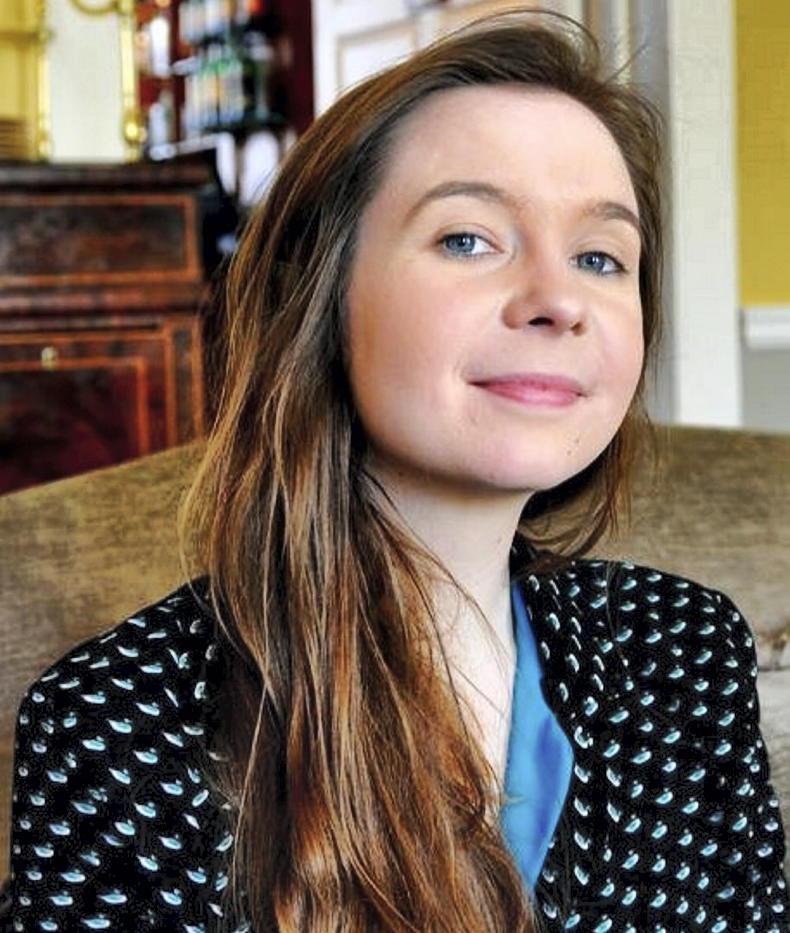
Kirsten Southard is programme coordinator for UCD's BSc in Sustainability
“[This student] decided – because sustainability has such a huge impact on agriculture – he wanted to be at the forefront of that and he’s really interested in carbon sequestration,” Kirsten explains.
“So through him, we made a connection with the Fingal Farmers’ Group. And through them, we have established four awards, which will start this upcoming academic year.”
The four awards are worth €500 each. Two will be awarded to first-year students, and two for third-year students.
The first students will be expected to write a short piece on sustainability within rural communities, and the winners will use the funds to help them get established within the university and their studies. The third-year students will be expected to write a larger piece on a similar topic and the winners will use the funds to study abroad.
To learn more about this
programme, visit
ucd.ie or email
sustainability@ucd.ie
Read more
New UCD Masters programme takes a holistic approach to animal science
A diverse Masters programme with Macra Agricultural Skillnet and UCD
What does the word sustainability mean to you? Is it a buzzword which gets over-used by businesses and the Government, or does it have a deeper meaning?
The topic may appear broad, but University College Dublin’s Bachelor of Science (BSc) in Sustainability sees it in an interdisciplinary way – with representation from numerous disciplines such as science, social sciences, law and economics.
The programme is aiming to attract students with an interest in a broad range of industries who will benefit from the added training. Through industry partners, its internship programme and its connection to UCD’s Earth Institute, students will have pathways to research areas or for careers within industries like business, government or environmental sciences.
“There is an ever-growing number of companies with sustainability-related departments, as well as a growing number of sustainability consultancy businesses,” programme co-ordinator Kirsten Southard says. “The graduates will be an attractive prospect for these sorts of roles. They will also have the opportunity to study further through graduate programmes.”
Earth Institute
UCD’s BSc in Sustainability is Ireland’s only bachelor level degree in sustainability. As co-director of this programme and director of UCD’s Earth Institute (where much of UCD’s intersectional research in sustainability takes place), Professor Tasman Crowe is able to impart up-to-date knowledge and inspire students to take a different approach to environmental research.
“I’ve been in UCD for 21 years now,” he explains. “My role in the Earth Institute is all about bringing people together from different disciplines, getting them talking to each other, sparking new research ideas and translating that into policy and impact. That’s alswo translated into the sustainability degree.
“We can’t be working in individual silos. We have to be talking to each other, and to the wider society, to better understand what we need from research.”
Mix of backgrounds
The BSc in Sustainability is still relatively new at just three years old, but is gaining in popularity. Southard says there has been a 50% increase in mentions of the programme in this year’s CAO.
“There’s a real interest in it from prospective students, which is great,” she says. “It’s in its third year now, so we’ll have a full cohort next year. The first cohort was 40 students and now it’s increased to 90. The CAO points for 2021 were 506. There are a lot of students from Dublin, but there are students from more rural areas as well; [there is] a nice mix of backgrounds in the programme.”

Professor Tasman Crowe is director of UCD's Earth Institute and co-director of their BSc in Sustainability.
In addition to the required CAO points, prospective Leaving Cert students will require a 02/H6 in mathematics and a 06/H7 in Irish, English, and three other recognised subjects. For Maths, ordinarily Level 2 is a grade of 80-89%, whereas the Higher Level 6 is 40-49%, an Ordinary Level 3 (70-79%) or Higher Level 7 (30-39%) in Irish, English and three other recognised subjects.
Flexibility
This programme is unique in its broad approach. In first year, students take a common year – meaning they all take the same range of foundation courses, including introduction to sustainability, scientific enquiry, global justice and introduction to economics.
From there, students develop an idea of where they would like to specialise. From second year on, they focus on one of three specialisations: environmental sciences; social sciences, policy and law; or business and economics.
“Once they’ve chosen a specialisation, they continue to take core modules in sustainability, which brings the whole class together,” Tasman says. “They get quite a lot of time with people with different perspectives, which is valuable. They also take some modules from other specialisations all the way through.
“What we’re trying to do is help the students develop a well-rounded perspective on sustainability challenges – and employers are really excited about that,” he continues.
“They’re looking for people who have that sensibility about them – who can help drive business into more sustainable models.”
A larger aim of this BSc is to forge relationships with different regions, people and organisations to create positive dialogue and learn from others’ experiences. Students have the option of participating in student exchanges, internships and will spend time in other regions on specialised field trips to learn how different sustainability models work within different environments.
Recently, the programme forged ties with the Fingal Farmers’ Group. This occurred when a member of the farming group decided to enter the BSc programme as a mature student.

Kirsten Southard is programme coordinator for UCD's BSc in Sustainability
“[This student] decided – because sustainability has such a huge impact on agriculture – he wanted to be at the forefront of that and he’s really interested in carbon sequestration,” Kirsten explains.
“So through him, we made a connection with the Fingal Farmers’ Group. And through them, we have established four awards, which will start this upcoming academic year.”
The four awards are worth €500 each. Two will be awarded to first-year students, and two for third-year students.
The first students will be expected to write a short piece on sustainability within rural communities, and the winners will use the funds to help them get established within the university and their studies. The third-year students will be expected to write a larger piece on a similar topic and the winners will use the funds to study abroad.
To learn more about this
programme, visit
ucd.ie or email
sustainability@ucd.ie
Read more
New UCD Masters programme takes a holistic approach to animal science
A diverse Masters programme with Macra Agricultural Skillnet and UCD






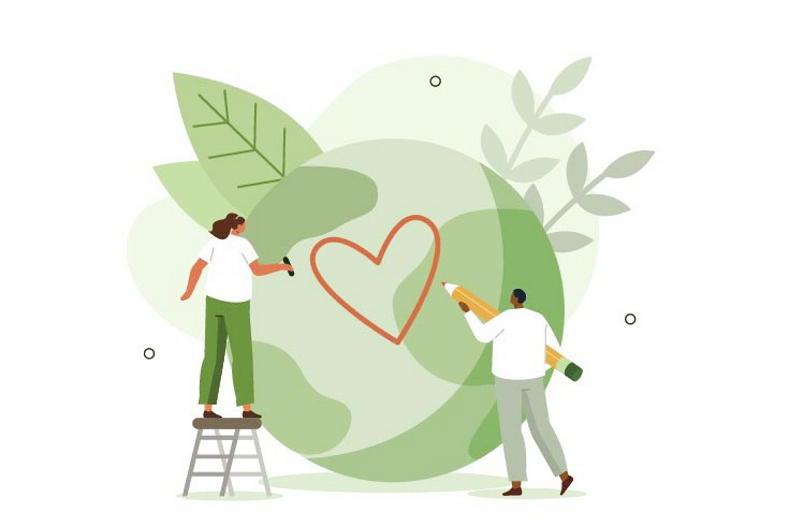
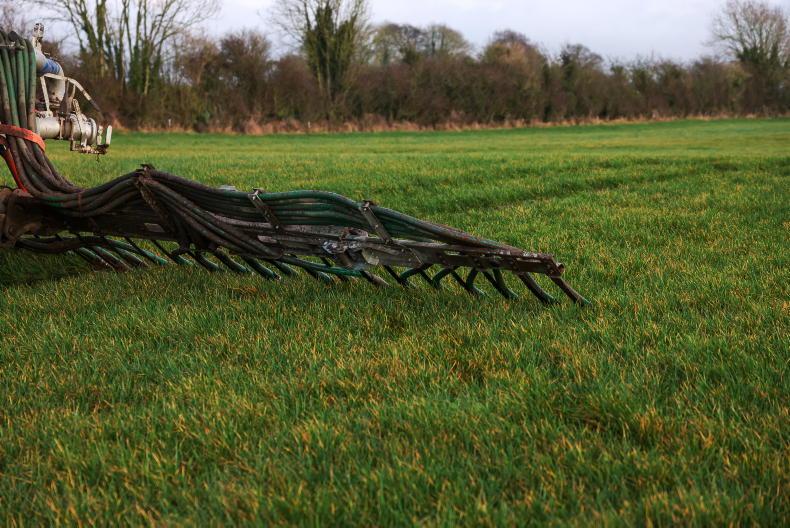

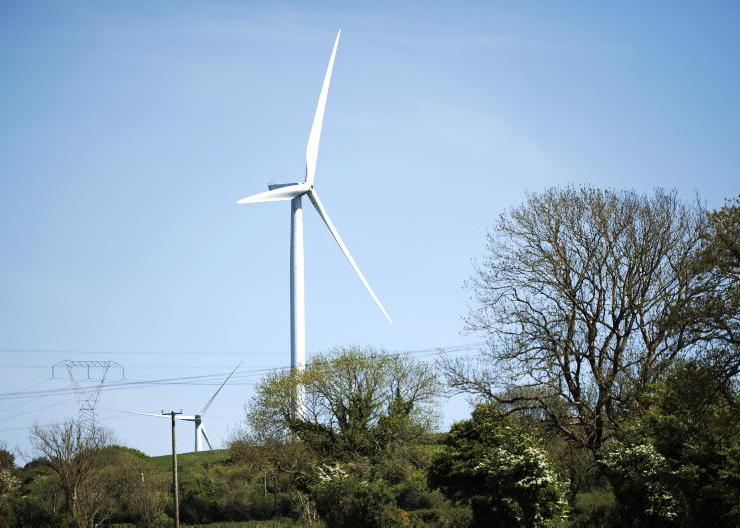
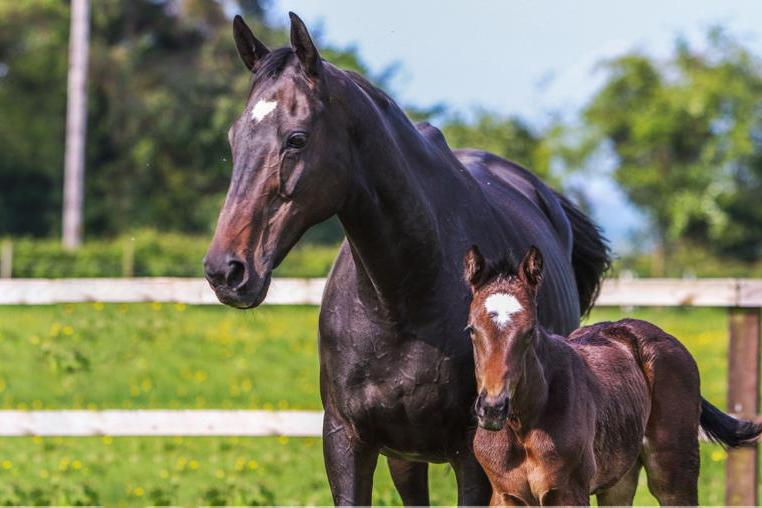

SHARING OPTIONS